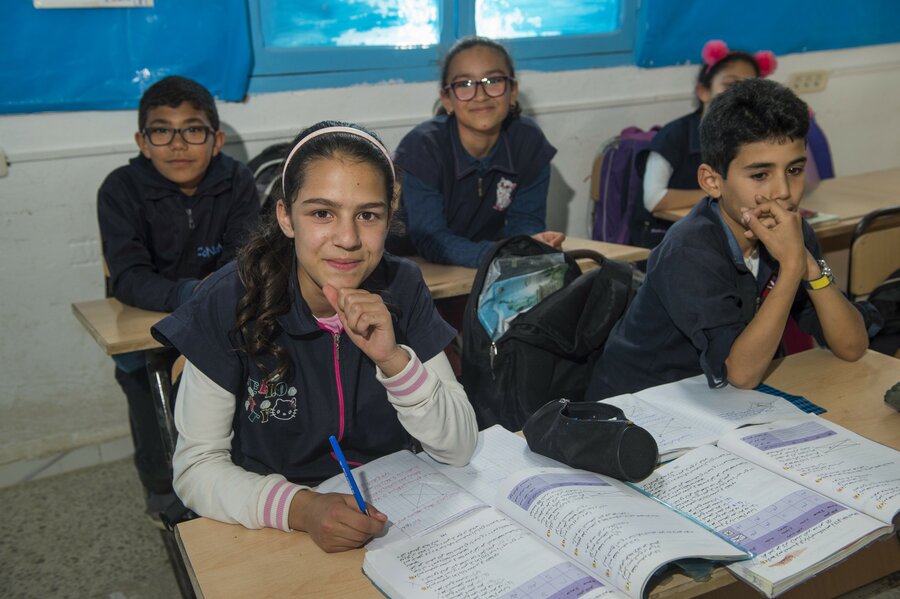Feeding dreams in Tunisia’s schools
Perched on a hilltop, Jeradou is a small farming village in Tunisia overlooking the Mediterranean Sea. Fatma, 10, attends the Jeradou elementary school — the same school her parents and their parents went to. This is one of the 2,500 schools that are part of the national school meals programme. With technical support from WFP, Fatma's school is providing daily hot nutritious meals to 165 children aged 5 to 12.
The school has its own garden, where Fatma and her friends can learn how to grow vegetables. A recently-installed greenhouse covers part of the school's backyard.
"I eat the vegetables we grow in the school garden — they are tasty and I like them," says Fatma.
Next year, thanks to a local women's association and WFP, fresh vegetables from this greenhouse will be enough to supply other school canteens in the area.
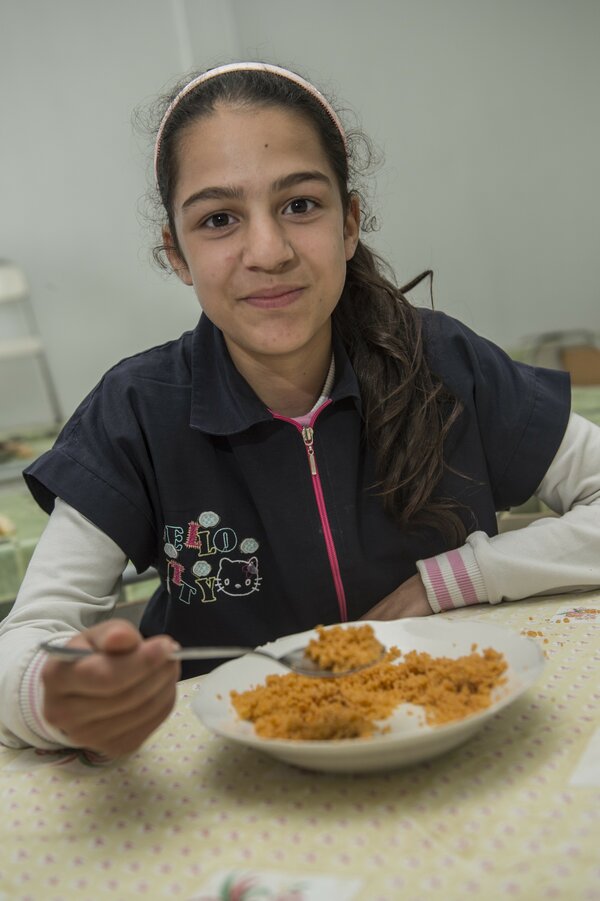
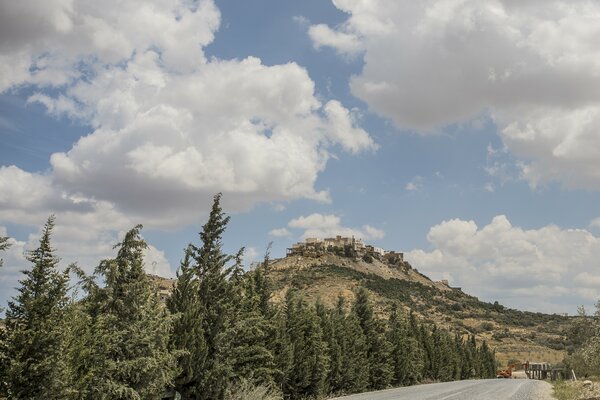
Fatma starts her day at 6:30 am. She gets up and quickly goes over some school work before getting ready. She works hard towards realising her dream of becoming a surgeon one day.
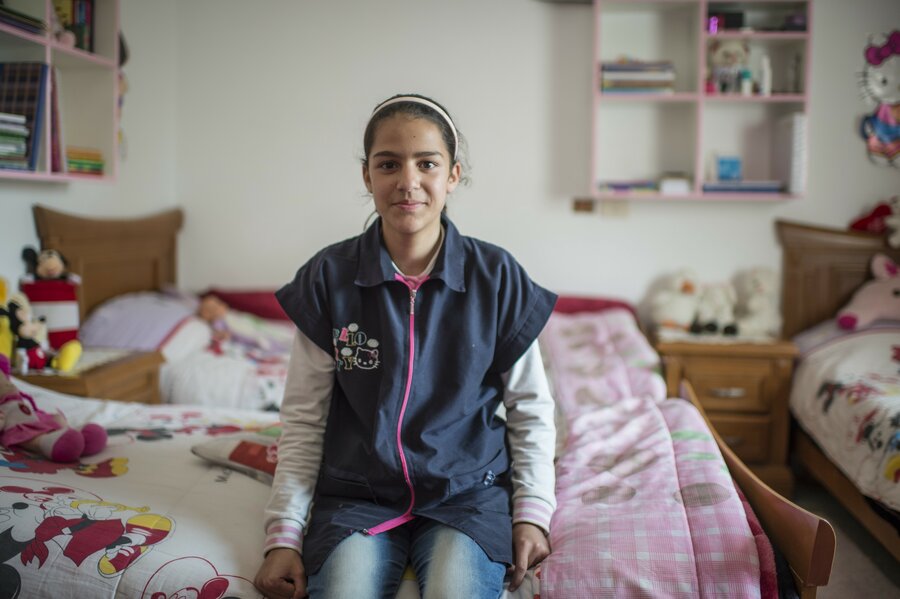
Fatma and other children living in the village are lucky; the school is only a 20-minute walk away. However, in Fatma's school there are about 40 children who live much farther.
A key objective of WFP's technical assistance to the government is to ensure that the most vulnerable girls and boys get quality school meals that address micronutrient deficiencies, such as anaemia. In rural areas, where many children walk more than 3 km a day to reach school, daily meals are key to reducing school drop-out rates and ensuring all children have an equal chance to succeed.

School meals are educational too
Back to the classroom and after the Math lesson, there is a discussion about good nutrition habits. "At the bottom of the food pyramid, you can find vegetables and fruits, you can eat them as much as you want," says Fatma. "At the very top, you have sweets. Treats like cake are for special occasions."
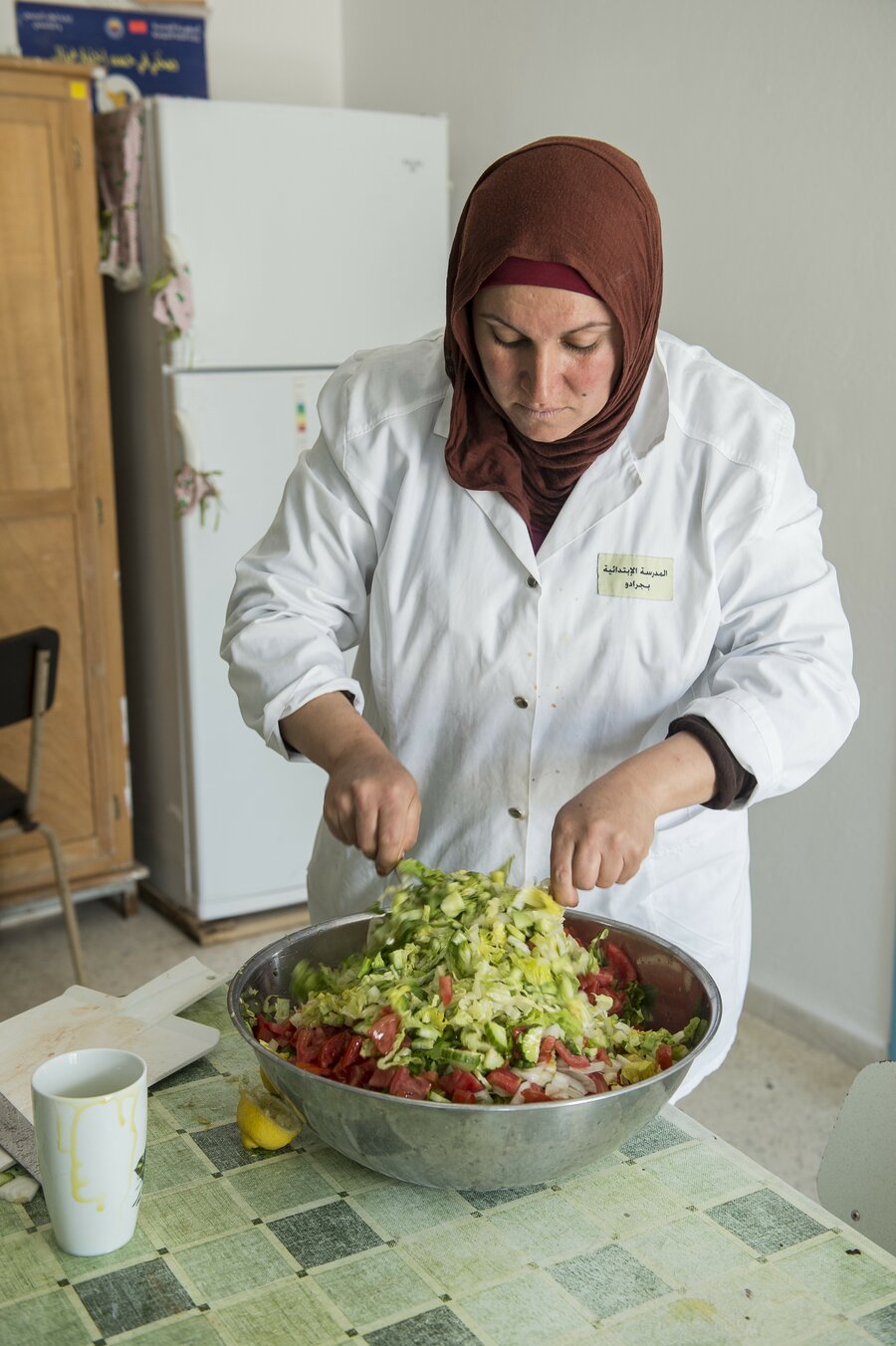
It is now lunch time, and at the school canteen Soumaia, the cook, is very busy setting the table for a group of lively children. "My favourite lunch is couscous!" says Fatma, and most of her friends agree. Today is couscous day, and Soumaia has prepared the traditional dish made of wheat semolina and served with vegetables. The lunch also includes an appetizing fresh salad with garden cucumbers and lettuce.
With excess vegetables from the school garden, Soumaia makes sun-dried tomatoes and peppers, which hang in long clusters on the canteen walls. Next winter, she'll prepare delicious stews with them. The children also grow aromatic plants such as sage and peppermint.
In the afternoon, Fatma and her schoolmates are full of energy. It's time for sports, usually a football or a basketball match. Fatma and her friends can also go to the school library to study, or to participate in a craft workshop and learn how to create mosaics.
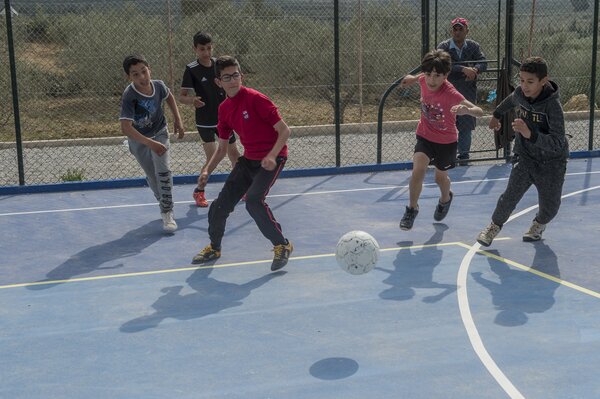
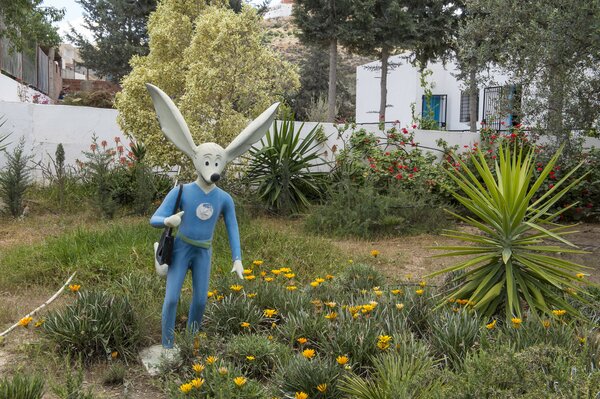
Education reform
School meals are a key component of Tunisia's ongoing education reform. Sharing a meal can help children form long-lasting connections with their peers, communities and nation, and build a sense of justice and belonging. Under this reform, schoolchildren will have classes in the morning, a locally-produced nutritious lunch at noon, and cultural and recreational activities in the afternoon.
